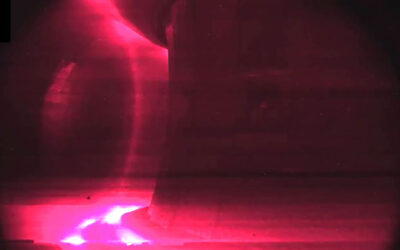 CalCEF, which creates institutions and investment vehicles for the clean energy economy, and Lawrence Berkeley National Laboratory (Berkeley Lab) today announced a partnership to launch CalCharge, a consortium uniting California’s emerging and established battery technology companies with critical academic and government resources. By bringing together the dozens of battery companies and institutions in California working on applications for consumer electronics batteries, electric/hybrid vehicle transportation and the electric grid, Berkeley Lab, CalCEF, along with other Bay Area academic institutions, aim to create a regional ecosystem for innovation in energy storage that will not only jumpstart a new era of battery technologies but also help ensure that U.S. companies succeed in this highly competitive environment.
CalCEF, which creates institutions and investment vehicles for the clean energy economy, and Lawrence Berkeley National Laboratory (Berkeley Lab) today announced a partnership to launch CalCharge, a consortium uniting California’s emerging and established battery technology companies with critical academic and government resources. By bringing together the dozens of battery companies and institutions in California working on applications for consumer electronics batteries, electric/hybrid vehicle transportation and the electric grid, Berkeley Lab, CalCEF, along with other Bay Area academic institutions, aim to create a regional ecosystem for innovation in energy storage that will not only jumpstart a new era of battery technologies but also help ensure that U.S. companies succeed in this highly competitive environment.
“The next decade will be critical for this industry and this region,” said Berkeley Lab Director Paul Alivisatos. “With our highly regarded battery scientists and state-of-the-art equipment at Berkeley Lab, the CalCharge consortium will be able to leverage these resources to enable the development of battery solutions for electric transportation and other clean energy applications in California.”
CalCharge is a first-of-its-kind public-private partnership working to accelerate the timeline of energy storage commercialization and market adoption through technology assistance, workforce training and market education. Members will have access to Berkeley Lab’s world-class scientific facilities and personnel, including testing and diagnostics equipment not available to many startup companies. CalCharge offers a streamlined and more affordable channel for Cooperative Research and Development Agreements (CRADAs) and similar arrangements. These allow firms to access technical resources at the Lab, which will help scale battery innovations from the bench to the market.
“To broadly scale renewable energy requires tackling the challenges of energy storage, and no technical community is better suited to those challenges than California’s battery engineers and scientists,” said Dan Adler, CalCEF’s president. “The companies and organizations that make up CalCharge will be central to forging a renewable energy future.”
California has emerged as the epicenter of battery innovation in the U.S., with more than 30 startups and large companies concentrated in the Bay Area alone. The state has consistently led battery technology patent registrations, reaching 258 filings from 2008 to 2010–more than the next three leading states combined–according to the 2012 California Green Innovation Index, an annual economic filing published by Next 10. What’s more, in 2011 venture capital investment in energy storage grew thirteen-fold over the previous year, making up 11 percent of the total VC investment in clean technology for the state.
“There’s a lot of battery know-how in California, specifically the Bay Area, but technology startups need an ecosystem to thrive,” said Venkat Srinivasan, head of Berkeley Lab’s energy storage research program. “The Berkeley Lab battery program, long known for its deep expertise in solving the problems in advanced batteries, is ideally positioned to work with battery companies in the region. We look forward to building this ecosystem with CalCharge.”
A thriving regional ecosystem for battery development requires contributions from diverse partners, including companies involved in advanced battery technology, customers who will use that technology, and research institutions that can offer expertise and equipment to accelerate development of new technology as well as an educated workforce pool–all supported by local governments that will provide the policies and incentives to foster a regional energy storage industry.
“We wanted to start CalCharge because we know that emerging energy storage companies are facing a complex market and major technical challenges,” said Doug Davenport, business development lead for energy storage at Berkeley Lab and CalCharge co-lead. “CalCEF is an ideal partner for us because they bring a focus on policy and markets that truly complements our science and technology orientation.”
Cheaper and higher-performing batteries are critical to our nation’s clean energy future–underscored by the White House’s call for decreasing greenhouse gas (GHG) emissions and putting one million electric vehicles on the road by 2015. Nationwide efforts are also underway to modernize our antiquated electric grid for increased renewable energy integration and grid-scale batteries are an essential element. California has also made strides to support battery technology development this year. It adopted the world’s first energy efficiency standards for battery chargers and enacted the second round of the Advanced Clean Car Rules, which targets a 34 percent reduction in GHG emissions from 2016 levels by 2025.
CalCEF and Berkeley Lab will be presenting the CalCharge launch at the Silicon Valley Energy Storage Symposium, Wednesday, May 30 at 9:40am. CalCharge membership inquiries can be directed to to [email protected].

















